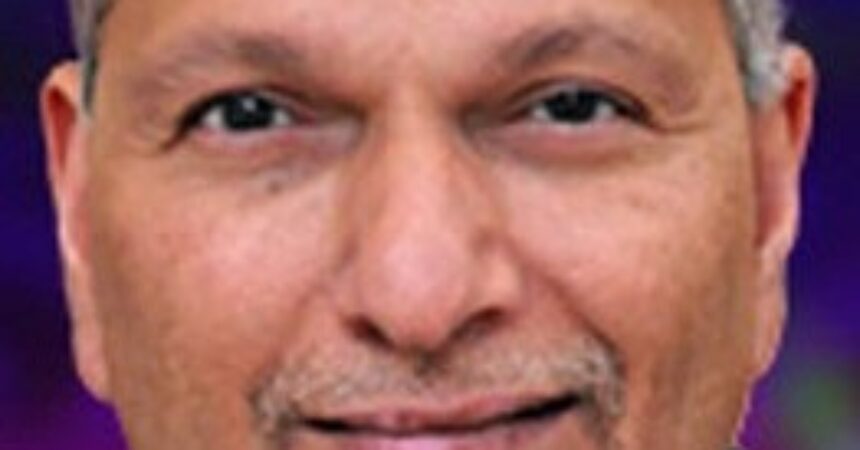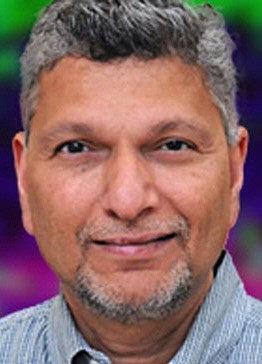
Experts become focus in battle over gun law

Photo special to the Outlook
By Dara Kam
News Service of Florida
A legal battle over a Florida law that raised from 18 to 21 the age to purchase rifles and other long guns has ramped up last month, with attorneys for the National Rifle Association and state officials trying to discredit each others’ expert witnesses.
The age requirement was included in a sweeping law passed in the weeks following the 2018 mass shooting at Marjory Stoneman Douglas High School in Parkland. Fourteen students and three faculty members were killed after Nikolas Cruz, who was 19 at the time, opened fire at the school using a semi-automatic rifle.
While the law banned sales of long guns to people under age 21, it does not block them from possessing the guns or receiving the guns as gifts. Federal law has long prohibited the sale of handguns to people younger than 21.
The NRA in 2018 quickly challenged the constitutionality of the state age requirement, and a trial was slated to begin Jan. 11 in Tallahassee. But Chief U.S. District Judge Mark Walker, who presides over the case, indefinitely postponed the lawsuit and all of his other civil trials until the coronavirus pandemic “is under control.”
Meanwhile, lawyers for the national gun-rights organization and the state are squabbling over who should be allowed to offer testimony.
One of the legal quarrels involves Pradeep Bhide, a Florida State University College of Medicine professor who has spent nearly four decades as a developmental neuroscientist. The state is paying Bhide $500 per hour to testify as an expert on adolescent brain development.
In a report filed with the court, Bhide said the Florida law makes sense because “different parts of the brain mature at different times.”
“Brain regions that exercise voluntary control over our actions develop at a slower pace compared to brain regions associated with emotional and impulsive actions,” Bhide wrote in the 12-page report. “Thus, a developmental ‘mismatch’ emerges within the brain during development,”
The “mismatch” is “particularly pronounced in adolescence … and it fades away in adults, by 21 years of age,” he wrote.
“In other words, certain human behaviors that we perceive as the actions of a ‘mature’ or ‘adult’ individual emerge, on average, at 21 years of age,” he wrote. “Delaying gun purchase until 21 years of age can offer the cognitive brain the ‘extra’ time needed to be able to exert adequate control over emotional and impulsive behaviors.”
Distinguishing between 18-year-olds and 21-year-olds to limit gun sales “is thoroughly justified from the perspective of neuroscience,” Bhide wrote.
But the NRA’s lawyers argue that Bhide’s conclusions are unfounded, accusing him of failing to provide “any hard evidence that young adults age 18 to 20 are more likely to commit criminal violence with a purchased firearm than other adults.”
Bhide’s opinions “are extrapolated from emerging research of others in the very specialized and controversial area of adolescent brain development,” the NRA’s lawyers wrote in court documents.
The gun-rights group also argued that Bhide isn’t qualified to offer expert opinions in the case “because he never studies human brain development and cannot pinpoint the age of brain maturity in humans.”
When asked by the NRA’s lawyers about his research on developmental differences between adult and teen brains, Bhide “admitted that he had only studied mice, not humans,” the gun-rights group’s attorneys wrote in a Dec. 3 court filing.
“Dr. Bhide may be qualified to opine in other areas of neuroscience but his deposition testimony confirms that animal research and studies by others of different age groups do not provide him the specialized knowledge in the subject matter at issue that would qualify him to offer an admissible opinion,” they argued.
But in a Dec. 8 response to the NRA’s motion to exclude Bhide’s testimony, the state’s lawyers defended the neuroscientist, pointing out that, although he has only performed lab experiments on mice, the professor “has studied and published on human-brain development for decades.”
In a pair of “alerts” to supporters this month, NRA Florida lobbyist Marion Hammer, a former president of the national organization, also targeted Bhide. Hammer referred to the former Harvard Medical School professor as a “rat-brain expert” and a “mouse-brain expert.”
Hammer also poked the Florida Department of Law Enforcement, a defendant in the lawsuit, for relying on “junk science” to support their defense of the law.
In court documents this month, the NRA also urged Walker to bar Bhide’s testimony “because he has not actually applied any scientific process in this case and because the data upon which he relies in his opinions does not address the alleged risk of firearm purchase by young adults and neurological development.”
Bhide’s testimony “cannot assist the trier of fact in this case because the only ‘fact’ for which his testimony has been offered is the link between a handful of articles on brain maturation and the speculation that young adults are more likely to commit criminal violence with a purchased firearm,” the NRA’s lawyers wrote.
But lawyers for the state bristled at the NRA’s criticism of Bhide, saying the professor’s 37-year career as a developmental neuroscientist makes him qualified as an expert in the case.
The NRA’s “request to exclude Dr. Bhide’s testimony is based on a strawman,” the state’s attorneys wrote. The neuroscientist “does not opine on the likely effect” of the age requirement on crime, they added.
Bhide “does not wade into whether (the law) will impact crime or whether a ‘link’ exists between age, firearm use, and crime. He does not mention crime even once in his report, and during his deposition, he underscored that he offers no opinions on firearm use,” they wrote.
The NRA’s experts are also under fire.
The state is trying to exclude testimony from Gary Kleck, a retired Florida State University criminology professor, and William English, an assistant professor at Georgetown University’s McDonough School of Business.
Walker has not ruled on the experts.







